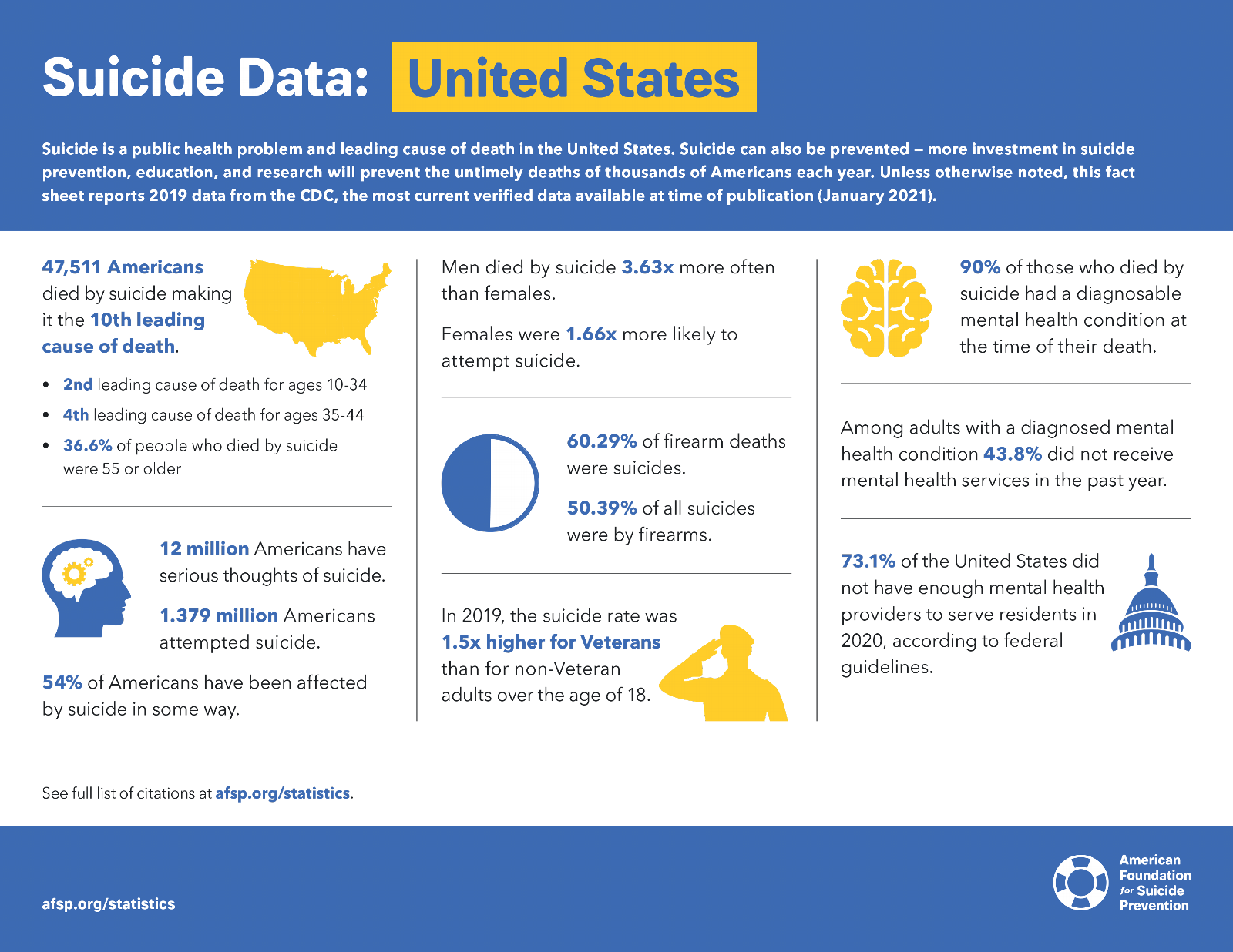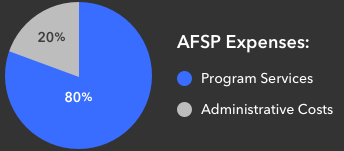Out of the Darkness Community Walks
The Community Walks, held in hundreds of communities across the country, are the core of the Out of the Darkness movement, which began in 2004. These events give people the courage to open up about their own connections to the cause, and a platform to create a culture that’s smarter about mental health. Friends, family members, neighbors and coworkers walk side-by-side, supporting each other and in memory of those we’ve lost.
Following the outbreak of COVID-19 in spring 2020, our amazing volunteers and staff were determined to stay connected to one another. Our participants came #TogetherToFightSuicide as we transformed the remaining Walks into a variety of physically distanced creative activities known as Out of the Darkness Experiences. As we look ahead to fall 2022, we're moving forward with plans to return to in-person Out of the Darkness Community Walks. The health and safety of our participants, staff and volunteers will be our top priorities as we work with local authorities to make decisions about event details in your community, and we'll continue to offer options to participate online and in your neighborhood.
The global pandemic has impacted the emotional and economic well-being of many individuals and families, and left many of us to manage a variety of emotions, including feelings of uncertainty. We also know increases in suicide are not a foregone conclusion if we act now to mitigate risk and support the mental health of our friends, families, and neighbors. But we need your help. Every dollar you raise through the Out of the Darkness Walks allows AFSP to invest in life-saving research, education, advocacy, and support for those impacted by suicide.
It’s more important than ever for us to stay connected. Register Today and help save lives and bring hope to those affected by suicide.
View our Out of the Darkness Community Walk FAQ or Contact Us with any questions.
The American Foundation for Suicide Prevention is dedicated to saving lives and bringing hope to those affected by suicide. AFSP creates a culture that’s smart about mental health through education and community programs, develops suicide prevention through research and advocacy, and provides support for those affected by suicide.
From the start of the pandemic, AFSP has been an important voice on caring for one’s mental health, using traditional and social media to convey messages about self-care, that physical distancing does not mean social isolation, and about staying in treatment, or seeking treatment through tele-mental health.
With your support, we will continue to meet the needs of the community and ensure our programs remain available to those we serve. Here are just a few recent examples:
- Created a section on AFSP’s website dedicated to mental health and COVID-19 that provides the most up-to-date mental health resources, information, and support.
- Delivered more than 500 suicide prevention education and loss and healing programs virtually through our 73 chapters across the United States, including Talk Saves Lives, AFSP’s most used public education program.
- Took steps to address mental health and suicide prevention among underserved populations, including launching a Town Hall series to bring attention to health disparities in communities of color; adopting a new research priority aimed at increasing suicide research in underrepresented communities; and forming a partnership with the National Latino Behavioral Health Association.
- Successfully advocated for passage of the National Suicide Hotline Designation Act, which designated 9-8-8 as the three-digit, easy-to-remember phone number for people in emotional distress. This new law also ensures states are able to increase support to local crisis centers to meet increased demand.
- Funded 38 new suicide prevention research studies since the pandemic, bringing our total current investment to $20 million, with 100 ongoing studies.
- As a part of National Suicide Prevention Week, we partnered with the National Action Alliance for Suicide Prevention to conduct a Harris Public Opinion Poll and found that 93% believe suicide can be prevented; 78% view mental health and physical health as equally important, and 95% of respondents said they would do something if someone close to them was thinking of suicide.
Our progress during this unprecedented time is only possible because of the generosity of participants and donors like you. Thank you for sharing your stories, for fundraising, and for donating to the Out of the Darkness Walks.
Learn more about the work your donations support by visiting afsp.org or by viewing our Annual Report. Join the conversation on suicide prevention by following AFSP on Facebook, Twitter, Instagram, and YouTube.
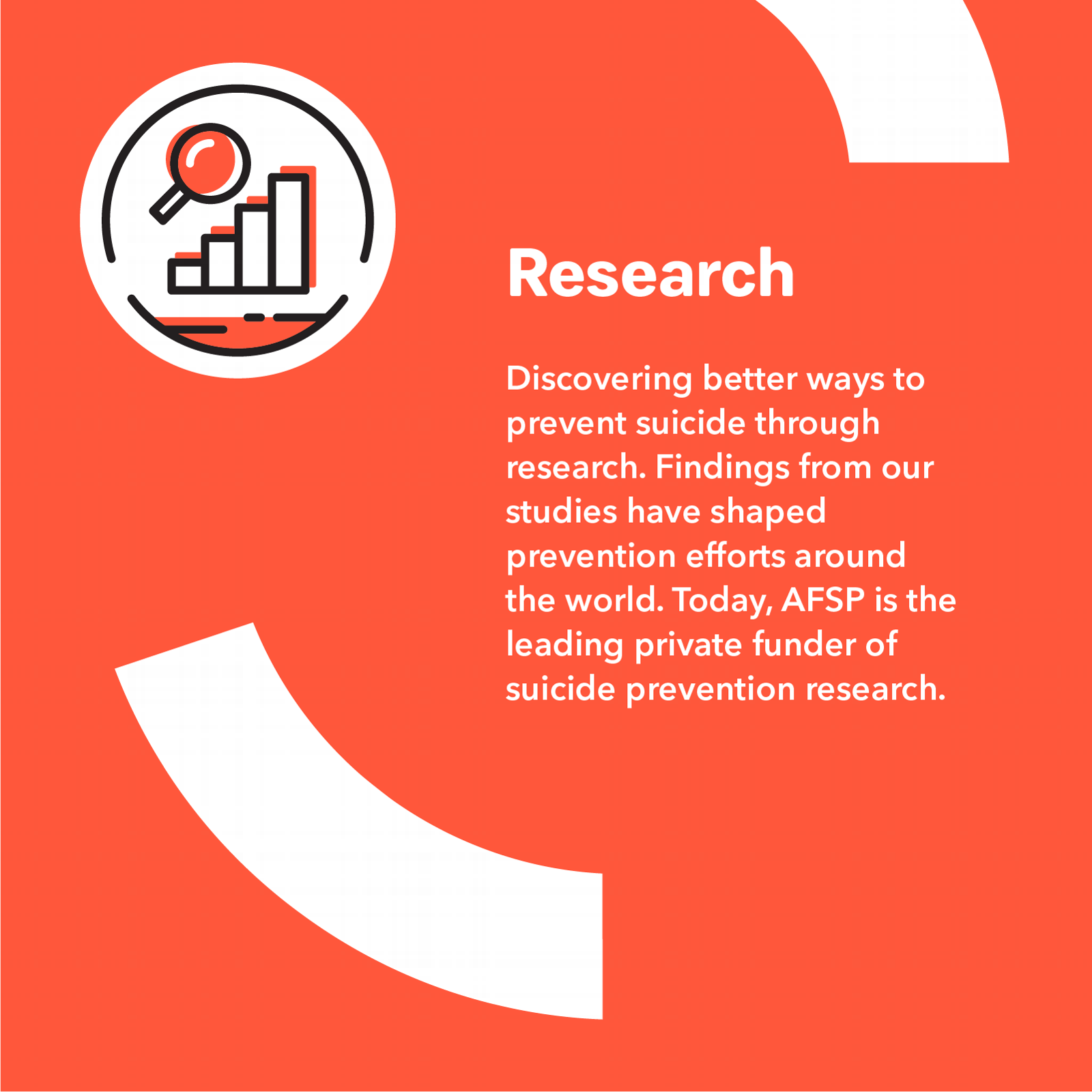 |
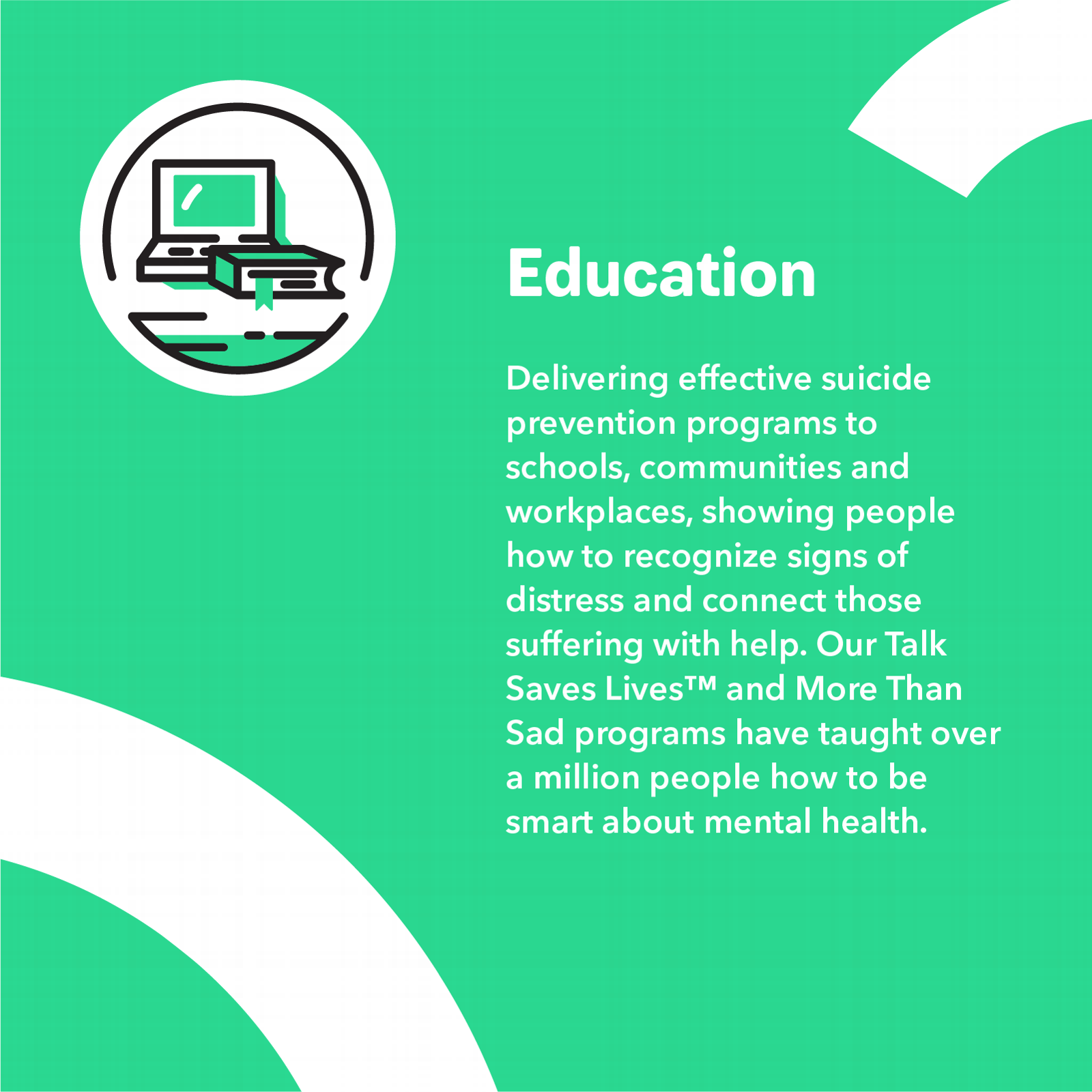 |
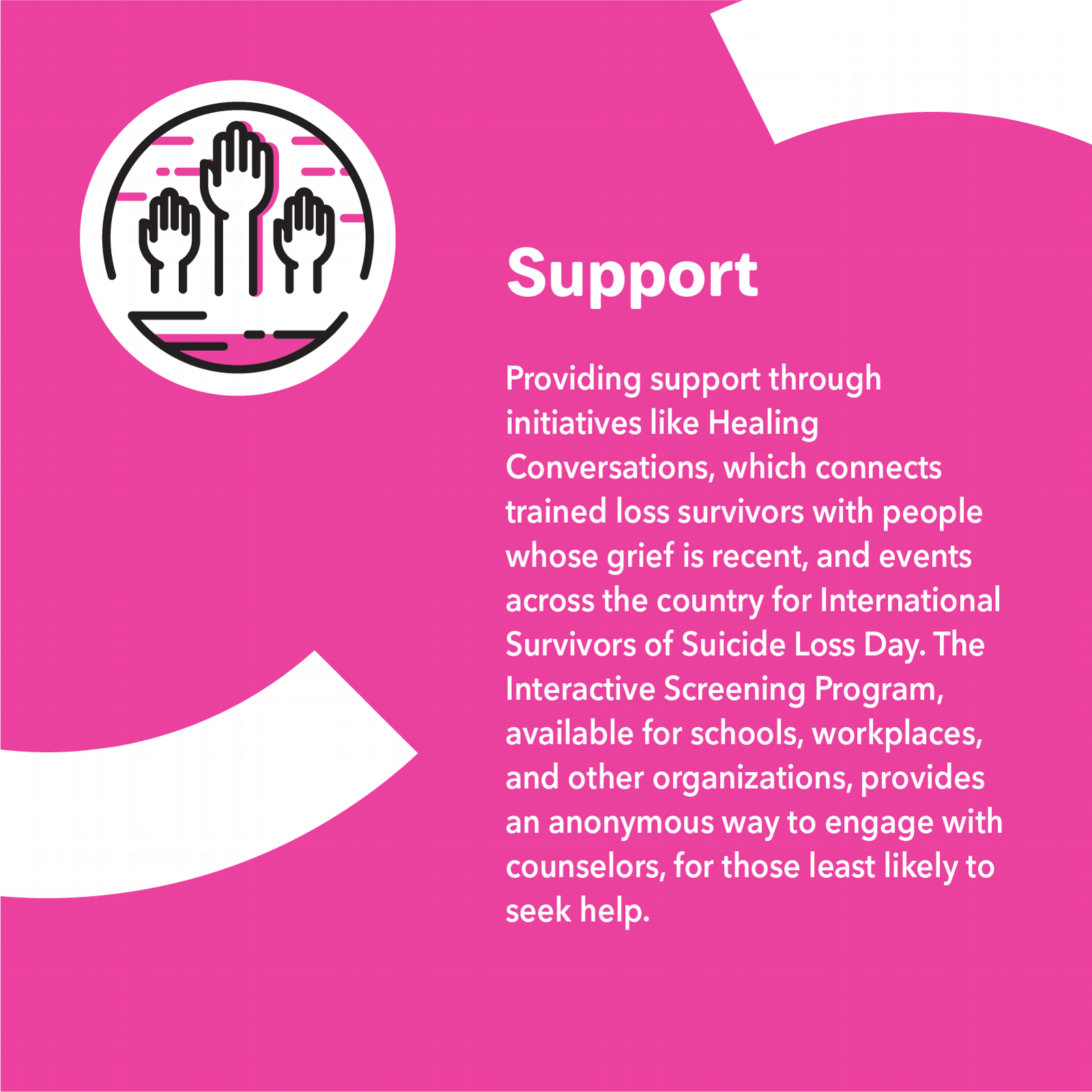 |
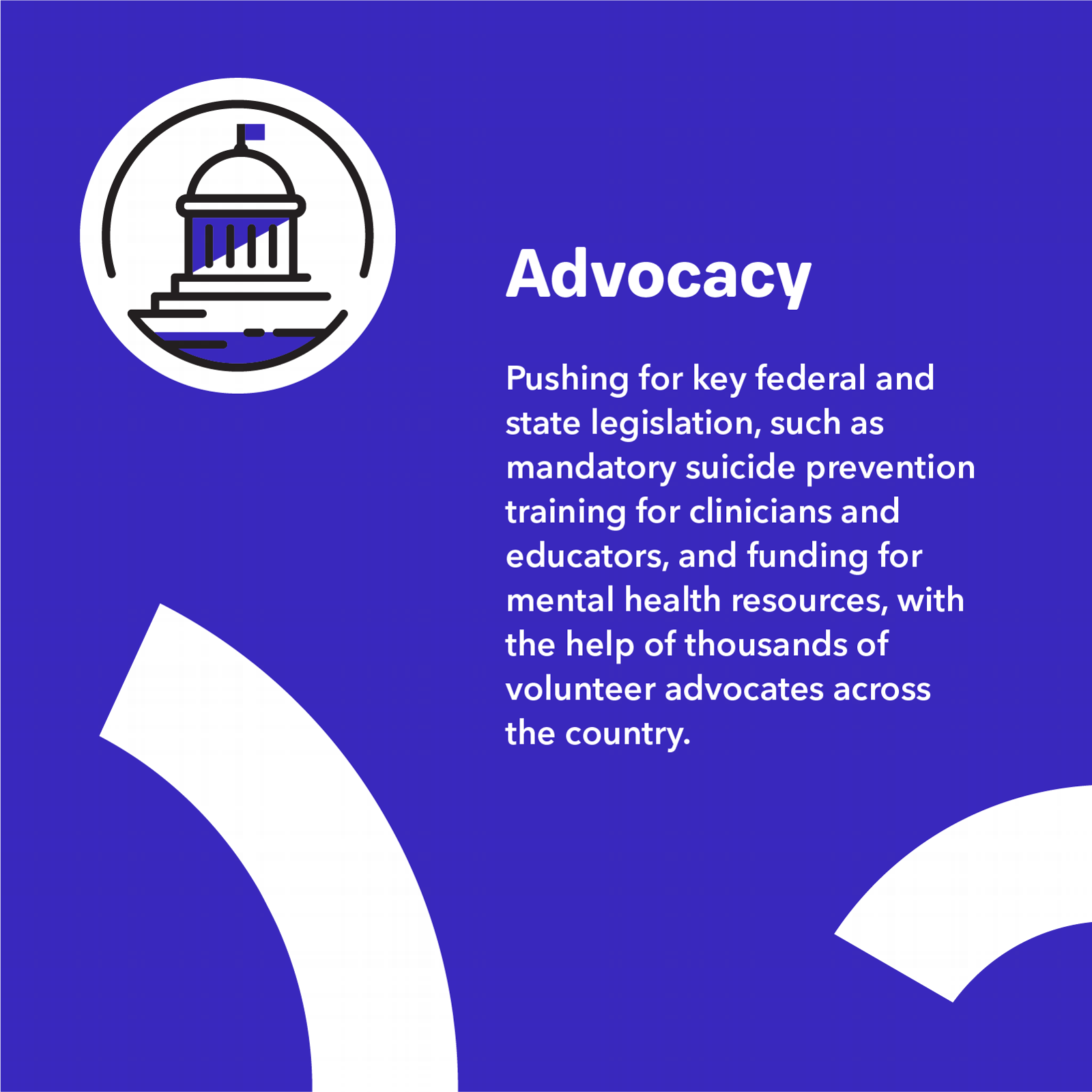 |
Suicide is a public health problem and a leading cause of death in the United States. Suicide can be prevented — more investment in suicide prevention, education, research, and advocacy can help save lives.
Facts about suicide in the U.S.*:
·Suicide is the 10th leading cause of death in the U.S.
- In 2019 (latest available data), 47,511 Americans died by suicide
- In 2019, there were an estimated 1.38M suicide attempts
- The age-adjusted suicide rate in 2019 was 13.93 per 100,000 individuals.
- The rate of suicide is highest in middle-aged white men.
- In 2019, men died by suicide 3.63x more often than women.
- On average, there are 130 suicides per day.
- White males accounted for 69.38% of suicide deaths in 2019.
- In 2019, firearms accounted for 50.39% of all suicide deaths.
- 93% of adults surveyed in the U.S. think suicide can be prevented.
Visit afsp.org to learn the facts about suicide, view videos from leading suicide researchers, and download infographics like our National Fact Sheet (pictured below) and Individual State Fact Sheets.
*Learn the latest published statistics on suicide from the Centers for Disease Control and Prevention (CDC) Data & Statistics Fatal Injury Report for 2019, retrieved February 9, 2021. Access additional verified data from the CDC.
If you are in crisis, call the National Suicide Prevention Lifeline at 1-800-273-TALK (8255), or contact the Crisis Text Line by texting TALK to 74174. AFSP does not provide its own crisis hotline service.


